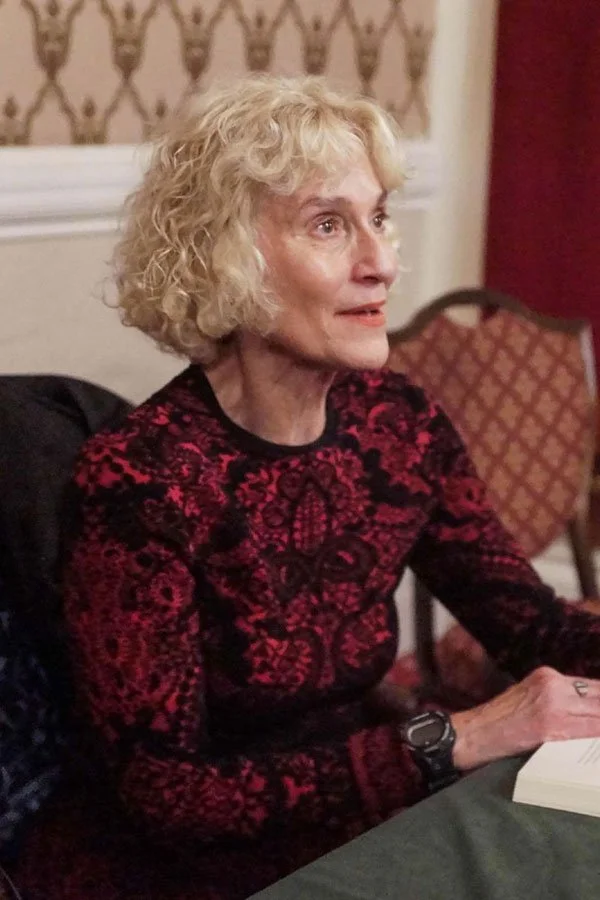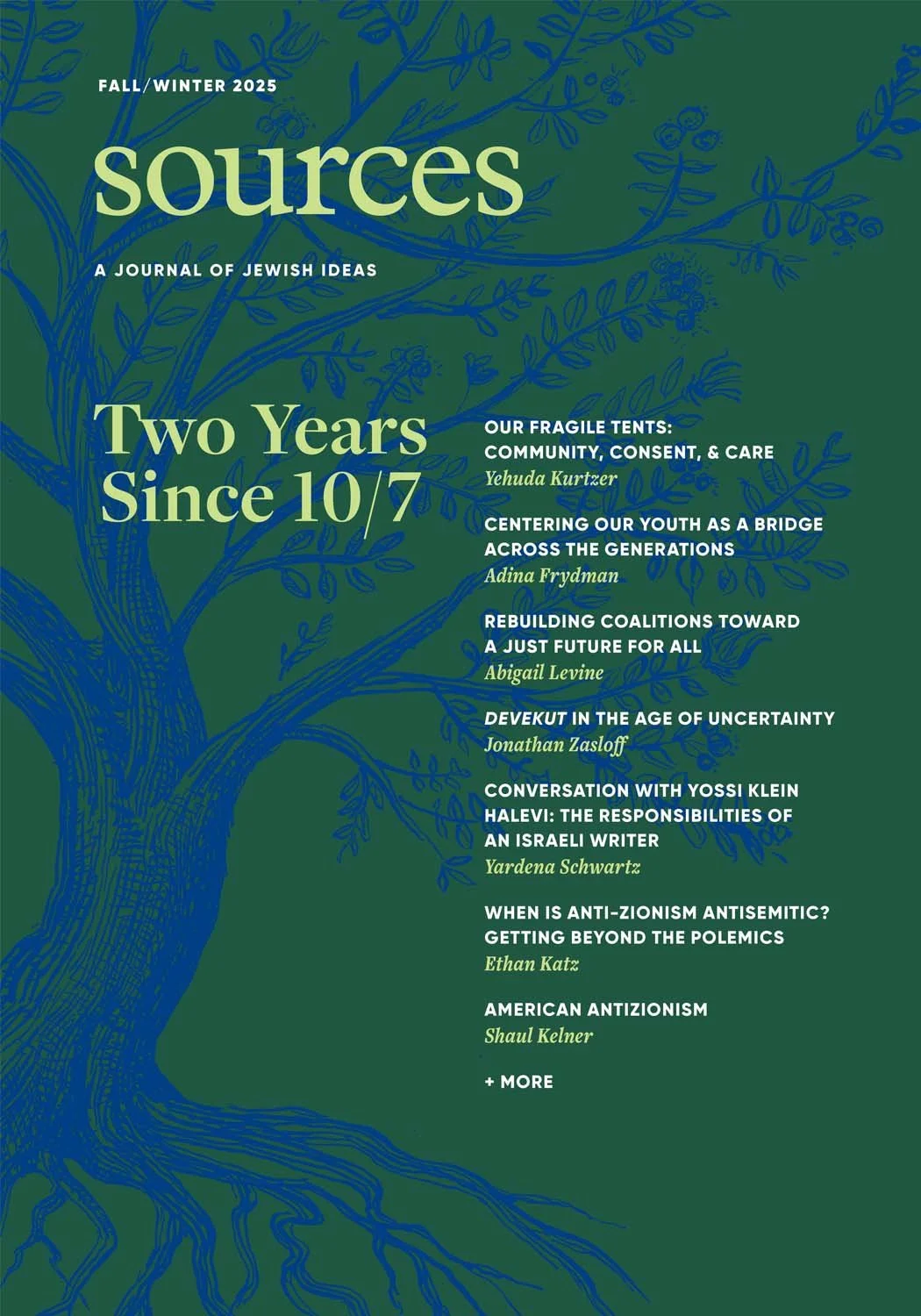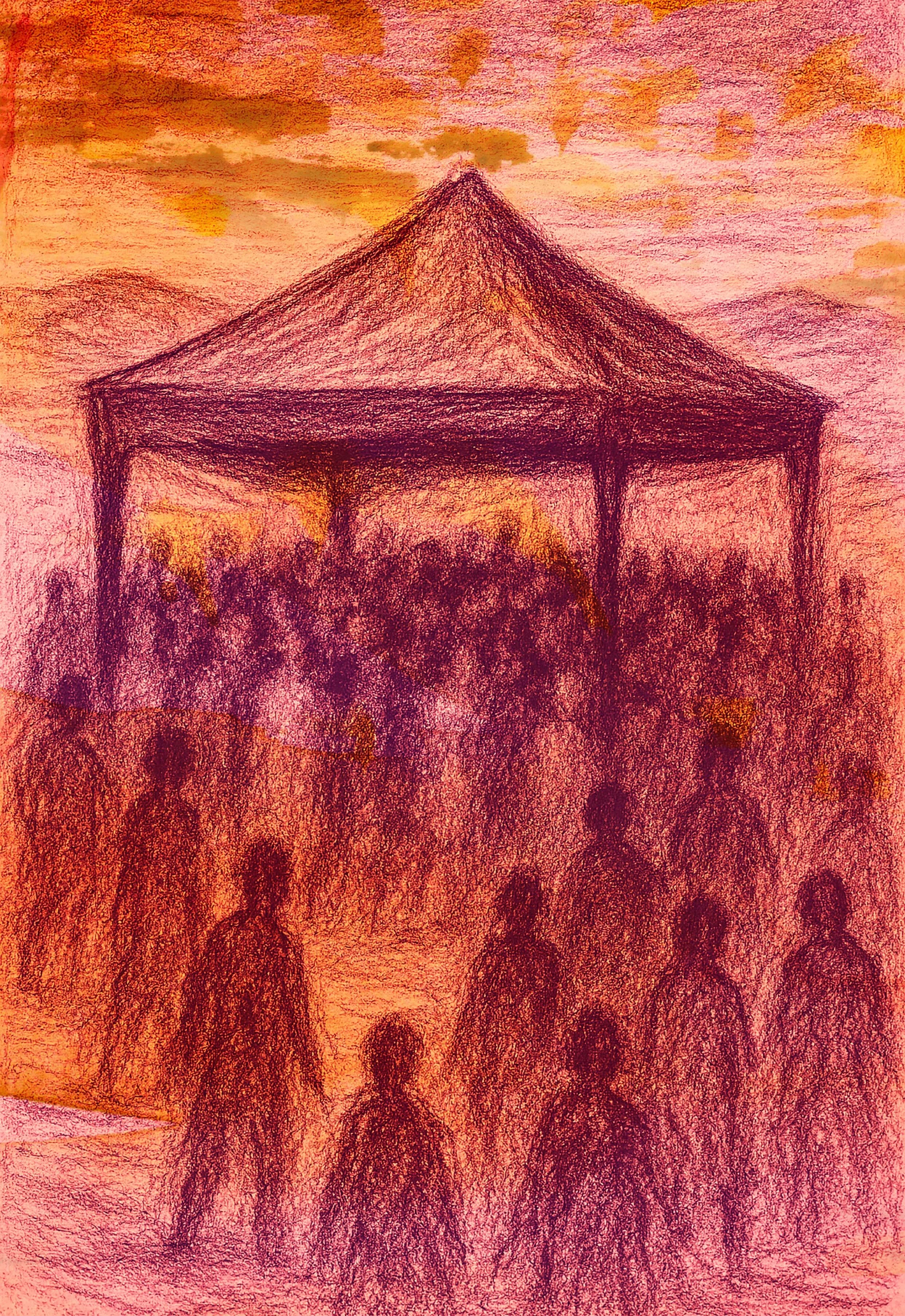An Interview with Martha C. Nussbaum
Benjamin Balint
Martha C. Nussbaum, 73, is one of the world’s foremost public philosophers. She grew up in an affluent Episcopalian home in Bryn Mawr, Pennsylvania. Her mother was an alcoholic whose forbears arrived on the Mayflower. Her father was a successful Southern-born lawyer whom she has described as “bigoted against African Americans and Jews.” He disapproved of his daughter’s conversion to Judaism.
For Nussbaum, coming to Judaism was both comfort and reprieve. She has described “the combination of joy and relief I found in entering a community in which outrage at injustice was normal.” She soon came to appreciate the Jewish tradition of spirited debate. “In great contrast to my Christian education, focused on catechism and professions of faith,” she wrote, “I discovered that in a Jewish conversion process it was possible to dispute about everything.”
After graduating from New York University in 1969, Nussbaum studied classics at Harvard and became the first woman elected to Harvard’s Society of Fellows. She credits two mentors—Bernard Williams and Stanley Cavell—with “helping women achieve equality in a male-dominated field.” Still, she found Harvard of the early 1970s “a shocking and repugnant place: anti-Semitic, sexist, anti-gay. My change of name from Craven to Nussbaum was much commented on.” Having been denied tenure (which she attributes “at least in part due to sexism”), she left Harvard in 1983, took a position at Brown, and has taught since 1995 at the University of Chicago. She joined the KAM Isaiah Israel Reform synagogue in Hyde Park, where she celebrated her bat mitzvah in 2008.
Nussbaum writes with virtuosic elegance on an exceptionally wide array of topics: the place of the emotions in political life (in her book Anger and Forgiveness); the connections between classical literature and the contemporary world; the importance of the arts and humanities in American democratic life (Cultivating Humanity); the human capabilities that must be exercised to assure dignity and flourishing (Frontiers of Justice); and the preconditions of securing religious freedom for minorities (The New Religious Intolerance). In her books The Fragility of Goodness, Love’s Knowledge, and The Therapy of Desire, Nussbaum looked at works of fiction and showed how literature and philosophy might together point the way toward living the good life.
Whether treating literary, legal, or political issues, she has consistently argued that any comprehensive ideology that claims to understand the good life fails unless it is accompanied by a love for that which is imperfect and vulnerable. “Philosophy does not compel, or threaten, or mock,” she has said. “It doesn’t make bare assertions, but, instead, sets up a structure of thought in which a conclusion follows from premises the listener is free to dispute. In that way it invites dialogue and respects the listener.”
In recognition of her scholarship, Nussbaum has won the Kyoto Prize (2016), the most prestigious award offered in fields not eligible for a Nobel; the $1 million Berggruen Prize (2018); and last year’s $700,000 Holberg Prize.
Nussbaum recently spoke with Sources about the intersections of her Jewish commitments with her interests in classical philosophy, women’s rights, gay rights, and animal rights.
In your essay “Judaism and the Love of Reason,” you beautifully describe your love for the ideas of the leaders of nineteenth-century Reform Judaism, a movement you praise for its rationalism, its moral mission and commitment to justice, and for “returning the religion to its original Biblical core.” You also say that on reading the essay, Rabbi Arnold Wolf called you and said: “You know what the trouble is with you? You’re a goddamn Reform Jew.” How do you feel about that characterization?
I feel totally good about it. Toward the end of his life, Arnold was feeling some doubts about the Reform tradition, and his message was a record of those doubts, in a typically challenging and cantankerous tone. What I think he meant is that I had reminded him vividly of what had drawn him to the tradition that he was then doubting. I’m happy I did that, and I think the tradition is admirable and wonderful. But I also think that doubt and continual scrutiny are of the essence of the tradition, so Arnold was being a Reform Jew even in his doubt.
In Women and Human Development (2000), you criticize secular feminists for ascribing patriarchy to religious traditions. In “Judaism and the Love of Reason,” you cite feminism and cosmopolitanism as “issues that have been at the heart of the Reform movement since its inception and to which Reform Judaism gives, in my view, more satisfactory answers than do other varieties of Judaism.” You’ve also keenly addressed sexual harassment and gender inequalities (as in your books Sex and Social Justice and, most recently, Citadels of Pride: Sexual Abuse, Accountability, and Reconciliation). Do you see reason to believe that the Jewish tradition—including the Orthodox variety—is inherently patriarchal?
There are four distinct religions (Orthodox, Conservative, Reform, and Reconstructionist), not one, although they have deep links with one another. I don’t even really think that Biblical Judaism is inherently patriarchal. I once wrote a paper on the Creation stories in Genesis and learned a lot about how great interpreters have read Genesis 1 as holding that the first human was a hermaphrodite. And there are many other ways in which the apparently misogynistic aspects of the text have been differently interpreted by great textual scholars.
“Reform Judaism has always linked moral reflection to concerted political action for the sake of justice.”
So if Orthodox Judaism were only textual Biblical Judaism, it would not be misogynistic. Of course, Orthodoxy is also built on later texts, many of which are misogynistic. But really that’s what the Reformers were trying to do: to take the religion back from that later accretion of texts to its core. And it is in the very nature of Reform that it has no essence: it is each person’s autonomous attempt to make sense and to live well. Isaac Meyer Wise, who founded Hebrew Union College, was a Spinozist and denied that there was a personal God. Other Reform Jews accept a personal God. And so forth. Today, I see nothing patriarchal about Reform, Reconstructionist, and even Conservative Judaism. All ordain women as rabbis and cantors. Indeed, at HUC today about 60 percent of the rabbinical candidates and 70 percent of the cantorial candidates are women.
The biggest difference between Reform and Conservative Judaism today is in the treatment of non-Jews. Conservative Jews won’t perform interfaith marriage ceremonies, though they will warmly accept interfaith couples into the congregation after someone else has married them. And they won’t allow non-Jews to stand on the bima during a bar or bat mitzvah. Reform Jews are happy to perform interfaith ceremonies; my daughter and son-in-law were married in such a ceremony. After my daughter’s death, my son-in-law continues to be a member of the congregation, although he has not officially converted. So that is the difference that makes me feel I would not want to join a Conservative congregation. But it’s not anything about the treatment of women. My daughter had her bat mitzvah in a Conservative congregation, the famous Worship-Study congregation at Harvard led by the wonderful Ben-Zion Gold. It was just the most exciting and uplifting place to practice Judaism in Cambridge in those days. Back then it was called “conservative-egalitarian,” because not all Conservative congregations were egalitarian about women. But now they are.
Why in your view is religious ritual important for people who seek to live a moral life? And how does the question of ritual help shape distinctions between Jewish ethics, Hellenistic ethics, and Christian ethics?
Immanuel Kant said that people have a duty to join a religious group of the right sort (the rational sort, and Reform Judaism is pretty much the rational religion he had in mind), because we are all weak and inclined to deviate from the moral law, but in a group with others our resolve is strengthened. That’s pretty much what I believe. But I would also draw attention to the rapid pace of our lives these days, and the fragmentation of attention that goes with that. It’s good to focus on moral imperatives at specific times, in the company of others. And Reform has always linked moral reflection to concerted political action for the sake of justice.
Three years ago, I got an honorary degree from Hebrew University in Jerusalem. One of the other honorands was the Israeli novelist David Grossman. In my little speech I painted a portrait of the Judaism that inspires me, including our commitment to correct injustices in our community and to welcome all strangers. Grossman later said to me that that is the sort of Judaism Israel needs. Indeed, Reform Judaism is growing in Israel, but perhaps not very rapidly. His own wonderful speech to the graduates (he was the main speaker) talked about the capacity of the literary imagination to see the infinite in each person, and to cross the boundaries that divide us in life. He then asked whether that capacity is being lost in the Israel of today. So that is what Reform strengthens, I believe: that imaginative capacity to see the infinite in each person and to welcome the stranger.
Christianity also can do this, and in my city black churches are central pillars of the community, nourishing hope and a nonviolent response to injustice. As for Hellenistic ethics, its emphasis was on extirpating the emotions that link us to other people and a world outside our control, so it could not play this type of role. At most it could restrain anger and hatred, insofar as those would be based on attachments to the “external goods” that they deplored.
Diogenes coined the word “cosmopolitan” in the fourth century BCE. When asked from what city he hailed, he replied that he was a citizen of the world (kosmou politai). You’ve described cosmopolitanism—rooted in the Stoic tradition of radical equality of dignity for all—as a “noble but flawed ideal” (the subtitle of your 2019 book). Could you share with us a few words on how that ideal might square with your own attachments and affinities to the Jewish people?
It really has nothing to do with my Judaism, except that the Judaism I belong to requires the pursuit of political justice. Cosmopolitanism is certainly highly compatible with a personal attachment to a group that pursues justice. The difficulty comes with whether it is compatible with attachment to a particular nation, or state, or city, since those are political units and cosmopolitanism holds that one’s first loyalty should be to the entire world. I think it is flawed for several reasons: first, this is a comprehensive doctrine of how to arrange one’s values, and as such it is not a view that can become the object of what John Rawls calls an “overlapping consensus” among all the reasonable comprehensive doctrines of value, both secular and religious.
Second, as the Dutch humanist Hugo Grotius said in the seveneenth century, the nation has a moral importance: it is the largest unit we know that is accountable to people’s voices and that can be a vehicle for their autonomy, their wish to give themselves laws of their own choosing. We should have special attachments to our own nation and channel global duties through those, I argue.
Third, cosmopolitanism is a form of humanism, and has nothing to say about duties to non-human animals and nature. Here of course there is a tension with Judaism, as traditionally conceived, but as I’m sure you know there are strong animal-rights movements and environmental movements within Judaism. One meaning of tikkun olam surely should be to repair our relationships with the other species whom we have so grievously wronged. (My next book is on animal rights.) So I wouldn’t speak of an attachment to “the Jewish people,” but rather to a Jewish tradition and the ways that it might pursue justice for animals as well as for people.
You’ve worked on two apparently distinct topics: social and global justice on the one hand, and the structure of human emotions (including disgust, grief, consolation, and compassion) on the other. What unity of purpose would you say underlies this diversity of concerns?
The core is a concern with human vulnerability. Emotions report how things are standing with our most vulnerable attachments. And justice enables us to protect at least some of them. A just society defends some types of vulnerability (love, friendship, grief and mourning, etc.), but does not permit people to be hungry, to lack health care, etc. The capabilities list is basically a list of non-necessary and non-good forms of vulnerability that a decent society should remove.
A final question: You testified in the 1993 trial of Colorado’s Amendment 2, which would have prohibited laws making gay conduct or orientation a ground for “minority status, quota preferences, protected status, or claim of discrimination.” You testified then that Western moral objections to homosexual conduct have no extra-biblical and hence no rational basis. How would you assess the shifts in the legal discourse around LGTBQ rights in the intervening three decades?
First, I’d urge anyone who wants to understand that case and my contribution to it to read a long article, “Platonic Love and Colorado Law,” that I published in Virginia Law Review, with an appendix co-authored with Sir Kenneth Dover. It goes into all the details about who said what, why experts on Greek philosophy were there at all, and so forth. A shorter version is in my book Sex and Social Justice, but the long version is more interesting and better. And then I wrote a whole book on the LGBTQ movement in U.S. law, From Disgust to Humanity: Sexual Orientation in American Constitutional Law (2010). I think that book’s analysis is not out of date, particularly in what it says about why the right-wing attack on same-sex marriage is flawed and a form of “projective disgust.”
“One meaning of ‘tikkun olam’ surely should be to repair our relationships with the other species whom we have so grievously wronged.”
Well, the movement has of course made amazing progress, undreamed of by me when I first began teaching and writing about these issues. And it has made so much more progress than the struggle for women’s equality and the struggle for racial equality. Even the lives of transgender people, once a forbidden topic, are now defended at the highest levels: even our conservative Supreme Court held last year that discrimination against trans people is a form of illegal sex discrimination.
I think the reason LGBTQ people have made such rapid progress is that treating them with equal respect does not require straight people to change their lives. Treating women equally does require men to change, for example by sharing domestic labor and child and elder care. And treating racial minorities equally requires privileged elites to give up many privileges to create a society with less poverty and lack of opportunity.
The hardest struggle is to win decent treatment for non-human animals, who are tortured in so many ways every day. They have languages and speak a lot, but we humans have a vested interest in not listening. We would have to change our entire lifestyle: not just our diet, but also our use of habitats that animals need for their own lives. My daughter was a lawyer for animal rights, and I think this is about the highest calling there is.
Love Jewish Ideas?
Subscribe to the print edition of Sources today.
This article appears in Sources, Spring 2022.




